Know Your Lore: Why Warcraft needs factions
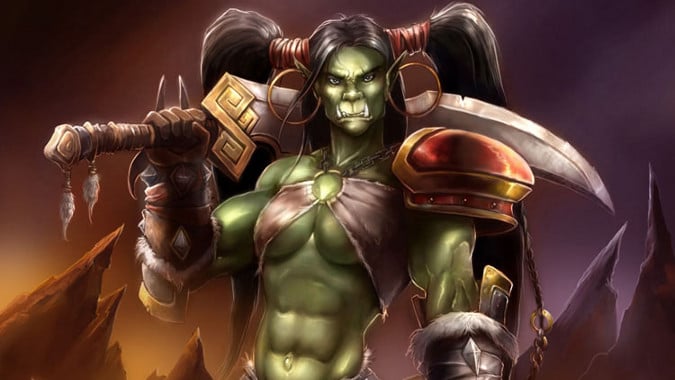
Some of us (okay, me) spend a lot of time decrying the effect of the Horde vs. Alliance factionalism in World of Warcraft. And as a player, there are quite a few negatives. If you were assembling a pros and cons list, cons would include that it divides friends and keeps them from playing together, that it constantly seems to hijack the narrative and keeps the game mired in petty factionalism, and that it has fostered divisions in the playerbase that mirror the narrative ones.
But there are positives. What are the pros on that ledger? What’s the good part of dividing your player base into Horde and Alliance?
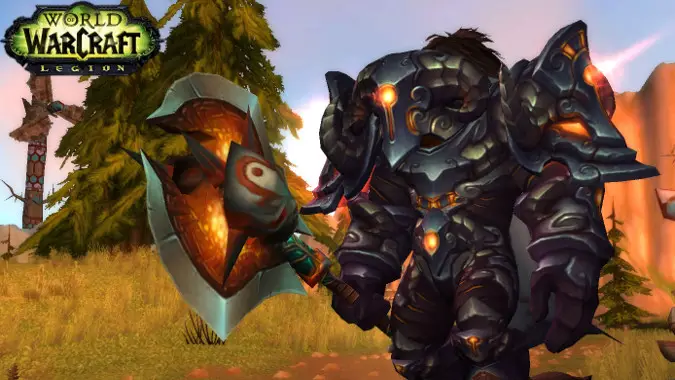
No one is a monster because everyone is a monster
I was watching this video from Outside Xtra (they’re right brilliant, I suggest you give them a watch) and when talking about the Warcraft movie they made an excellent point. By making the Horde a playable faction and putting Orcs, Trolls, Tauren and Forsaken on the same basic footing as the races of the Alliance, Blizzard made a bold statement all those years ago. The “monster” races aren’t monsters. They have goals, drives, ambitions, hopes, dreams, they’re trying to carve out a place on a hostile world just like the Alliance is. Neither faction always makes the right choices, and you can dislike what one of the faction does, but it’s what they do that matters. Orcs aren’t inherently evil in the Warcraft setting. They’re often violent, they tend to submit to a powerful authority figure readily, they made a huge mistake as a people and trusted leaders who lied and manipulated them, but they’re not inherently evil.
This distinction is the more strongly made by being part and parcel of the gameplay. You can be an Orc. You can experience what they go through, what their lives are now. It’s not perfect, but it does give you some idea of their viewpoint. And when you do, you can immediately experience the division between the factions. It’s baked into the game. In real life, we’re often divided by ideology, by loyalty to competing organizations, by old hatred and stubborn pride. The game quite rightly makes that a part of its mechanical structure. Why can’t Forsaken and Human characters talk to each other and just learn to get along? Because there’s a weight to fear, hatred and intolerance of those you should be able to talk to, but can’t.
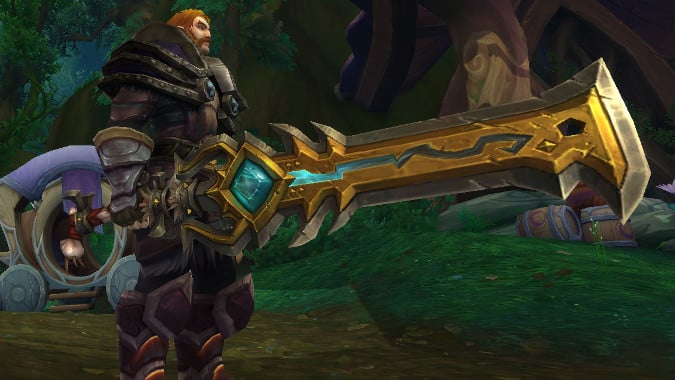
The Hammer of Our Resentments
We often decry that World of Warcraft can never resolve its internal conflict. It can never have a winner in the Horde/Alliance conflict because whoever wins, the game itself and millions of its players would lose. And that’s very true, and it’s also very telling. It speaks to how conflict actually works and the real nature of war. Whoever wins a war, someone else loses it, and the fact that it was even fought at all is a kind of loss. Now, I’m not necessarily arguing that Blizzard did this on purpose as a illustration of the folly of war. It’s just as likely it was done because they know that keeping players arguing about which faction is better keeps them passionate about their faction, and thus the game itself. A player who bleeds Horde red is less likely to grow bored, after all. Bored players just drift away.
But the effects can have more than one direction. By keeping the Horde/Alliance divide forever unresolved we see a mirror to real life issues where conflicts between competing ideological groups also were unresolved for hundreds of years, often well past the point where anybody in those groups truly understood what they were fighting for anymore. Young Tauren who were born well after the First War are adults now, and they have no real stake in the issue of who sacked Stormwind, but they know that Orcs helped save them from the Centaur threat when no one else would. The whole history of the conflict is of little concern to them. Similarly, a Gnome who was trapped in Gnomeregan when the troggs attacked and escaped to Ironforge is more concerned with the help she received there and retaking her homeland, and the history of support to and from the Alliance against all threats (including two separate Horde invasions) than the plight of the Darkspear Trolls.
The game is often at its best when the narrative recognizes that nobody has a monopoly on thinking they are right, and that two adversaries can both be right and wrong at the same time.
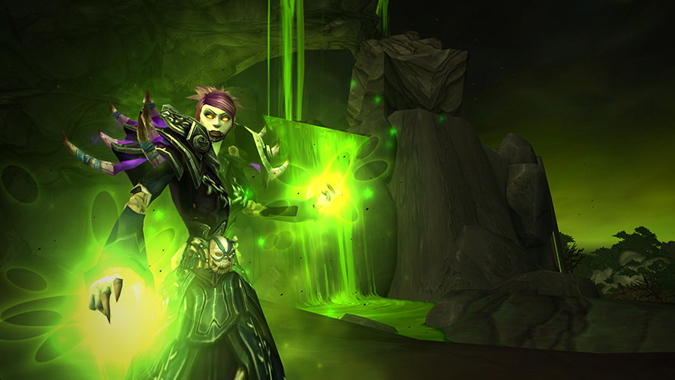
Unity is difficult
The times when people have come together and faced a common threat in a spirit of unity are so important in human history because they are so rare. Warcraft recognizes this.
Yes, the Legion is a grave threat to all of Azeroth and we should probably all work together to fight it. But looking at it from the perspective of the people on the ground and suddenly it’s not so clear cut. How many times in your life have you seen a grave issue or threat arise and seen people cling more tightly to their resentments? Are you really surprised that someone who grew up in Lordaeron only to be driven out when the dead rose from their graves and attacked her farm isn’t keen to trust that now those walking corpses just want to help save Azeroth? Would you want to trust your life to something you saw stagger from the ground and murder your entire family as you fled? Imagine someone sitting that person down and trying to explain the complicated Scourge/Forsaken dynamic to them.
Oh, so you mean at any moment someone dead person up in Northrend might get his magic hat working and they’d all want to kill us again?
These are not simple, easily discarded divisions between otherwise similar peoples. These are fundamental schisms between people that were never particularly close in the first place or who divided over pretty significant moments in their history. The Blood Elves and Humans were allies, and each side sees the other as having betrayed that alliance, and both have a point. Humans see Orcs as monsters who came through a portal into their lands and started murdering their people and destroying their cities, and that is in fact what happened. Orcs see Humans as hypocrites who engaged in wars of conquest themselves, and who once they beat the Orcs put them in camps little better than slave pens, and this is in fact true — humans conquered most of the Eastern Kingdoms from the Trolls and did put Orcs in filthy, dingy internment camps and debated exterminating them.
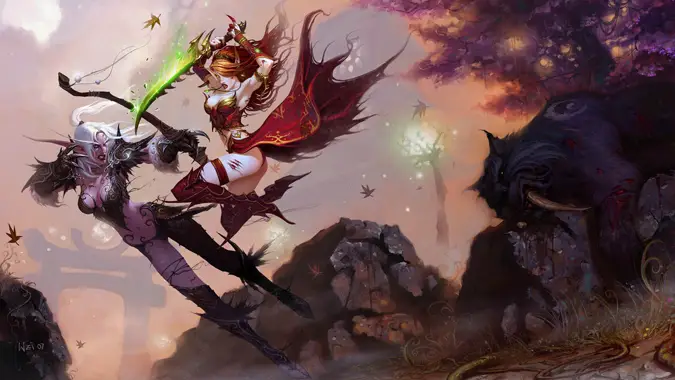
The division endures
The interesting thing about the faction divide in World of Warcraft is a simple one. Neither side is wrong, exactly. You can prefer one to the other and you can argue that it is the more or less sinned against, and you can back that up with points in the story. I have my preference and I’m fine admitting it, but the point is that it can be debated. There’s points to support either argument, or even to argue that both factions perpetuate the struggle and keep the flames of conflict stoked. And that, too, is a pro in the ledger for the depiction of the faction divide in World of Warcraft because that’s how factions work. You see it in politics, in sport team rivalries, in family arguments, in historical wars.
In the game’s narrative, you can easily play a Forsaken resentful at the Humans who get to sneer at her from the warmth of lives she can no longer live. A Night Elf enraged at the Horde for bombing her towns and killing her people while destroying the forests she calls home. A Troll who has been born into a culture that once ruled most of the world only to see others come along and whittle away everything… and all of them would be right.
People fight, and once they’ve started fighting, they don’t just stop. The way WoW has handled this over the years illustrates something about war and the way we fight it. It has value.
Please consider supporting our Patreon!
Join the Discussion
Blizzard Watch is a safe space for all readers. By leaving comments on this site you agree to follow our commenting and community guidelines.
 @MatthewWRossi
@MatthewWRossi




